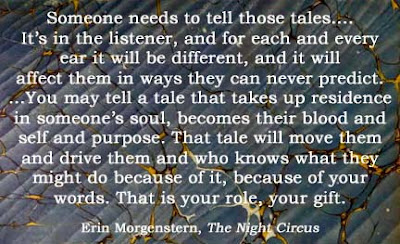Recently I mentioned writers can use dialogue to convey grief,
terror, or other emotional situations. Below is an example from The Letter Keeper by Charles Martin.
The story is about David Bishop and a priest named Bones who rescued teenage boys and girls who were abused, physically and emotionally, and forced
into the sex trade. Some had been kidnapped, others of them abandoned by their
parents.
In this scene, one night the narrator, David Bishop, and his
wife Summer were awakened by their dog and noticed a young lady they’d rescued
from sex trafficking, Casey, standing by their bed.
“I’m afraid.”
“Of what?”
“Going outside.”
Summer rubbed her eyes. “Why?”
Casey glanced out the window into darkness. “’Cause he’s still out there.”
. . . Her bottom lip trembled. . . . She waved her hand across the two of us. “I was wondering if. . . .”
Casey had one wound left to heal, and maybe I alone had the power to do so. . . . “Can we go for a walk?”
Casey nodded.
. . . The three of us shuffled . . . out into the cold . . . and into the chapel. . . . I turned to Casey. “I want to ask you a favor.”
She nodded above a trembling lip.
“One of these days, some young man is going to fall head over heels for you. . . . He’s going to have to ask someone for permission to marry you.” . . . Casey’s head tilted sideways, spilling tears out of her eyes. “And then someone is going to have to give you away.” At this, Casey sobbed and buried her face in her hands. . . .
I lifted her chin, knowing there is no deeper pain than that caused by the rejection or abandonment of a father or mother. . . . “Will you let us call you Daughter?”
Casey crumbled, hitting her knees, and fell into Summer. . . .
. . . “Will you let us adopt you? . . . Will you be ours? Forever?”
The sound coming out of Casey’s stomach had been there a long time, and I had a feeling it was the deepest of layers. . . . A beautiful cry. The sound of pain leaving and joy entering. . . .
As Casey melted into the floor at my feet, I began to whisper the one word she needed to hear. . . .
“Daughter. . . Daughter . . . Daughter. . . .”
When I finished, Casey lay in a fetal ball clinging to us. . . .
When she emptied herself, I sat her up. “Casey?”
. . . “Casey Bishop?”
She nodded.
“From this moment on, we take you as our own. . . . Forever.”
Now read the passage again and note how Charles Martin wrote:
- He used few words—his writing style is called “sparce”. He was concise, succinct.
- He used simple words which were, for the most part, only one- and two-syllable words. He avoided flowery and multisyllable words.
- He used no exclamation points. He didn’t need them because his word choices, sentence structure, and context conveyed the emotion and pain.
- He used almost no adverbs or adjectives (modifiers or qualifiers—sometimes called padding or fillers). When you write, use strong nouns and verbs. Rather than saying a person is “very poor,” choose one strong word, such as “destitute” or “impoverished.” Instead of writing that a person is “very worried,” choose one strong word, such as “anxious” or “frightened.” Avoid words like pretty, big, very, small, heavy, really, lovingly, speedily, haltingly.
Experiment with your passage to find the right balance: (1)
Avoid making light of—or diluting—the seriousness of the situation, but also
(2) avoid being overly dramatic. Melodrama is not a mark of good writing.
Finding words to write your traumatic accounts
might be painful for you, even agonizing,
but I urge you to pray your way through it.
Take as
long as you need.
Also recognize the opportunity you have
—as well as the responsibility—
to write your stories.
Maybe today you can’t imagine how God can use them
to bless your readers—your kids, grandkids,
great-grands, friends, and even strangers.
But keep reminding yourself that
you are part of a story much bigger than yourself.
Writing your memoir is more than a hobby
—it is a ministry.
You have a story no one else can tell.
Take in Erin Morgenstern's words:
“Someone needs to tell those tales. . . .
For each and every ear it will be different,
and it will affect them in ways
they can never predict.
From the mundane to the profound.
You may tell a tale that takes up residence
in someone's soul,
becomes their blood and self and purpose.
That tale will move them and drive them
and who knows what they might do because of it,
because of your words.
That is your role, your gift.”
(Erin Morganstern, The Night Circus)
.




